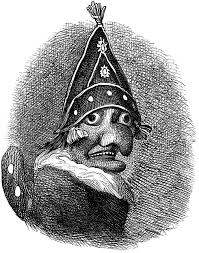
2024 Cuban Coup
As protests, power outages and food shortages sweep Cuba, America signals freedom for western hemisphere, and ominous change in Castro regime and communism in coming days.
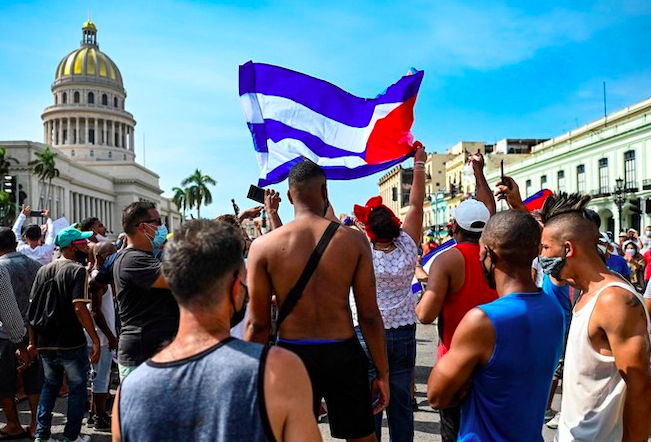
Cubans protest iliving conditions, power outages
When a statue of a communist leader is removed to make way for a luxury five-star hotel someone is skittish in Cuba. As the 2024 Cuban Protests bristle across the island over food shortages, power outages and a cost of living crisis, luxury hotels and resorts continue to multiply across the communist nation with international dollars. Since free market capitalism is coexisting with marxist economics were reminded of a catchphrase: “Lets put some lipstick on this pig!”
The Charles Schwab Corporation coined that phrase in a 2002 commercial about Wall Street’s conflicts of interest, but it was presidential candidate Barack Obama who actually made it famous. By 2014, he was the leader of the free world and spearheading the official re-opening of the United States Embassy in Cuba.
The first U.S. embargo (1958) and Trump era sanctions (2017) are criticized by both Fidel and Raúl Castro as inhibitors of the island's clean water, food security, medical care and economic growth. The larger picture:
The island is claimed as a colony of Spain in 1492; slaves are imported from Africa to work tobacco and sugar cane fields in 1526; the Spanish American War renders the island a protectorate of the United States in 1898; Cuba gains independence in 1902; a series of corrupt leaders (Machado, Batista) govern as dictators thereafter; and Fidel Castro's Cuban Revolution takes control of the island in 1959 and an alliance with the Soviet Union brings communism to the West.
In recent days, a convoy of Russian ships have arrived in Cuba for a series of air and naval exercises in the Caribbean. The four-ship caravan includes a nuclear-powered submarine, a fleet oil tanker, a frigate, a salvage tug and a hypersonic missile. While Russia supplies crude, oil and nuclear reactors to the island, Castro has recently welcomed a Russian delegation of government officials and business leaders with promises of preferential access to Cuban land, more favorable import tariffs and enhanced shipping arrangements.
All while the average Cuban’s income lies between $16.00 and $23.00 per month. A 500% fuel price hike took effect this year, squeezing 11 million people who rely on fuel powered generators for electricity. Since 2022, U.S. border officials have encountered nearly 500,000 Cubans at the southern U.S. border. Coincidentally, Donald Trump's front doorstep in south Florida. The presumptive GOP nominee has vowed that Cuba’s leadership will be changed when reelected in November. He opines on Truth Social:
Under Cuba’s brutal and corrupt dictators, the Cuban people are suffering terrible food shortages, energy blackouts, poverty, religious persecution and political repression. I support all of the brave people of Cuba who are standing up against the vile communist regime. It’s not easy and we appreciate it and it’s gonna be changed.
Despite re-designating Cuba a state sponsor of terrorism in the twilight of his presidency, the 2024 U.S. presidential candidate signed off on behalf of the nation. “We are with you,” he wrote, and in so doing hints at the very change to come.
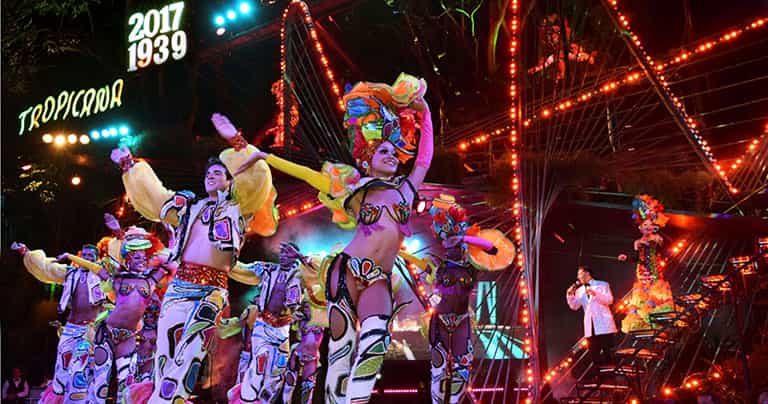
The Tropicana
Once the playground of Hollywood’s rich and famous, A-list celebrities like Frank Sinatra were once regulars at the Hotel Nacional where they sipped on signature Mojitos and smoked Cohiba cigars. El Floridita created the Daiquiri for Ernest Hemingway where he penned, “For Whom the Bell Tolls.” Even Ava Gardner, Jane Mansfield and Marilyn Monroe all danced at the iconic Tropicana Night Club. Havana, in fact, was the predecessor to Old Las Vegas: where gambling, entertainment, and luxury hotels all pandered to the American tourist.
A major influence was the President of Cuba, Fulgencio Batista, who controlled the island's casinos and drug traffic in an absolute government of corruption. Fidel Castro’s 26th of July Movement ousted the dictator, cozied up to the Soviet Union, created a socialist state, and brought soviet nuclear missiles to within 90 nautical miles of American shores. It can fairly be said the Cuban Revolution of 1959 effectively brought communism to the west.
It was the apex of the Cold War, and the next 50+ years would produce austerity in Cuba. The dissolution of the Soviet Union in 1991, Cuba’s complex and fractured relationship with Venezuela, and the failing health of Fidel Castro combined to turn the inevitable page of communism to market capitalism. By 2014, Barack Obama and Raúl Castro announced their intention to ease a 54-year stretch of hostility between the two nations and otherwise warm up relations between their people. The “Cuban Thaw” was an act of humanitarian brio designed “to help Cubans achieve a better future.”
The deregulation that ensued fostered commerce. U.S. Airlines began serving ten Cuban airports, Google modernized Cuba’s Internet, and cell towers began connecting the island-nation to the world. While the Cuban Embargo of 1958 can only be ended by the U.S. Congress, the Obama Administration took executive action to ease trade and travel restrictions, negotiated a prisoner exchange, and re-opened the U.S. Embassy in Havana.
Yet flying into the island nation in 2024 somehow feels more like a reconnaissance mission than a Caribbean retreat. Footpaths and dirt roads connect rural towns and villages where Cuba’s 11 million residents still dwell in abject poverty.
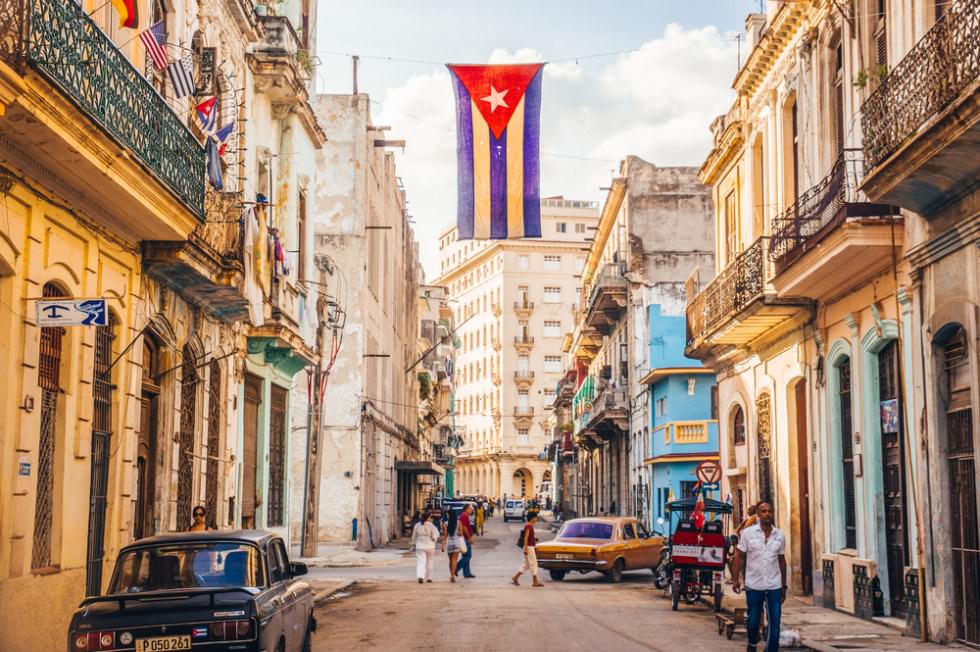
Old Havana
There's a stench at the airports of Moscow and Cuba. Each reek of soviet-era mystique and possess all the charm of a U.S. Department of Motor Vehicles. One queues through immigration into an inquisition, looks of suspicion and cursory mug shot. Then onto highways where relics, scooters and livestock all intersect into a labyrinth of vehicular chaos.
Fifteen harrowing kilometers separate the Jose Marti International Airport from the capital of a nation founded on ideals of social equality, and positioned at the very epicenter of Old Havana lies the newest pretender: The Gran Hotel Manzana Kempinski La Habana.
The Bold Venture
As the first five-star hotel in Cuba, the Gran Hotel Manzana is actually owned by Cuba’s Army (Gaviota), but operated by Europe’s oldest luxury hotel group (Kempinski), in as curious a pairing since Bogie & Bacall. In 1951, all of America tuned in to a 30-minute radio show about tropical Havana. Considered the most mysterious island of the Caribbean, salty seadog Slate Shannon (Bogart) owns a Cuban hotel and haven for revolutionaries. Sultry sailor Duval (Bacall) tags along, and together they navigate the waters around Havana in the “Bold Venture.”
What isn’t widely known is that Batiste was bankrolling Humphrey Bogart’s production company (Santana), and baiting America’s appetite for celebrity. Tourism to the island soared in 1952 and so did a real-life revolution, too. It was a breathtaking example of life imitating art in the 20th century. Even the Trump Organization breached the Cuban embargo in 1998 as it explored the possibility of opening a casino and resort on the island.
But how do you lure foreign investors into joint ventures with state owned businesses today, and why would any self-respecting foreigner oblige? The answer lies in the ethos of the island’s history.
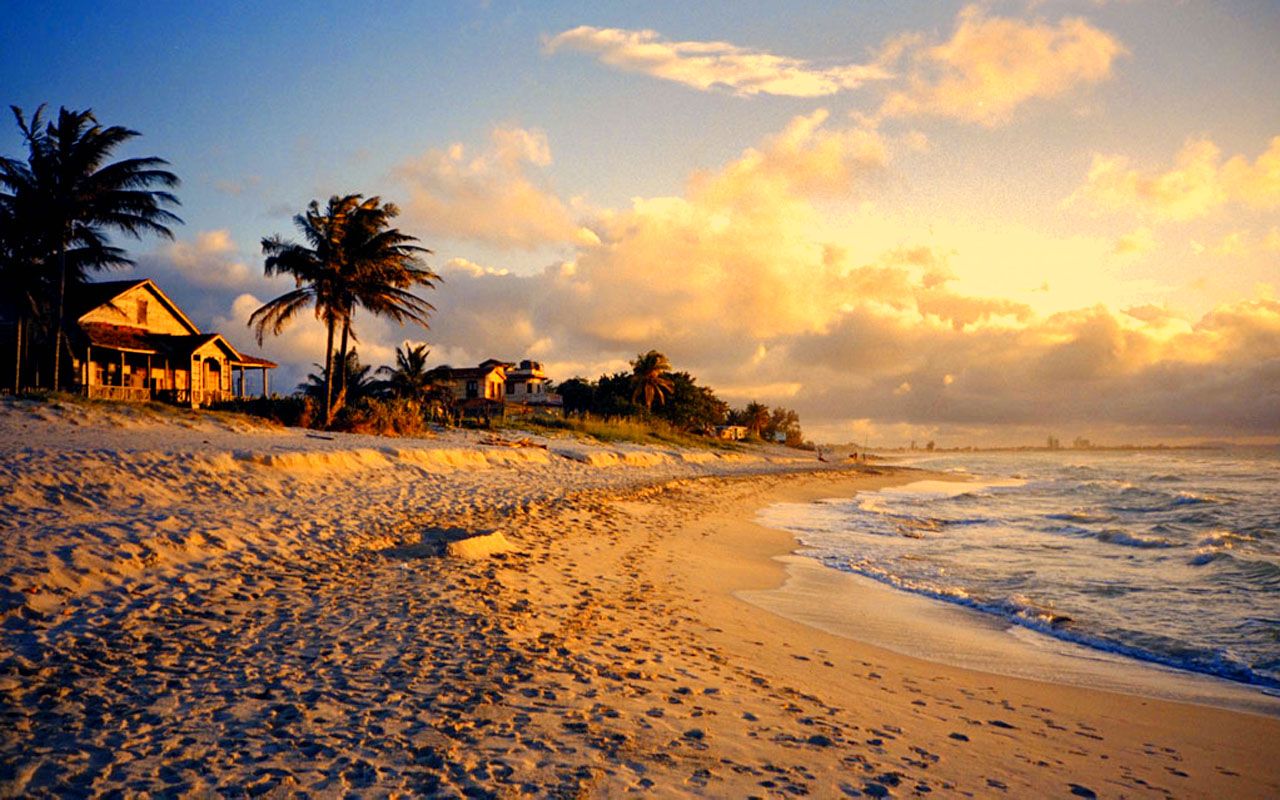
Saddle of Giara
Before the arrival of the Spanish, approximately 150,000 indigenous peoples inhabited Cuba. They were farmers, hunter-gatherers and fishers by trade, and the first to encounter Europeans in their “New World.” Christopher Columbus landed on the island in October 1492, and claimed it for the Kingdom of Spain. In 1511, Diego Velázquez founded the first settlement, and the indigenous peoples were forced to work under the Encomienda system. The Spanish Monarch offered military protection in exchange for indentured servitude.
For the next 400 years the indigenous people remained the subjects of Spain; until in 1898 they won their freedom in Cuba’s War of Independence. Soon the first European-style shopping arcade was built, and the now emancipated people took their first steps toward free market capitalism. Corruption, fascism, and communism ensued over the next century until June 2017 — when Gaviota redecorated the old shopping arcade into an opulent luxury hotel.
It's 246 rooms of luxurious pinks and plums are sumptuous, and the bouquet of white lily that wafts into every corridor and suite is arresting. The Cigar Lounge is a novelty, and the restaurant a glammy confluence of Cuban paladars and gastronomy. If the spa offers all the expected amenities, a penthouse state of the art fitness center proffers a skyline view of Havana's most stunning paradox. Where else in the world can you ride a Technogym lifecycle overlooking a veritable time capsule of vintage Cadillacs and Ox Carts?
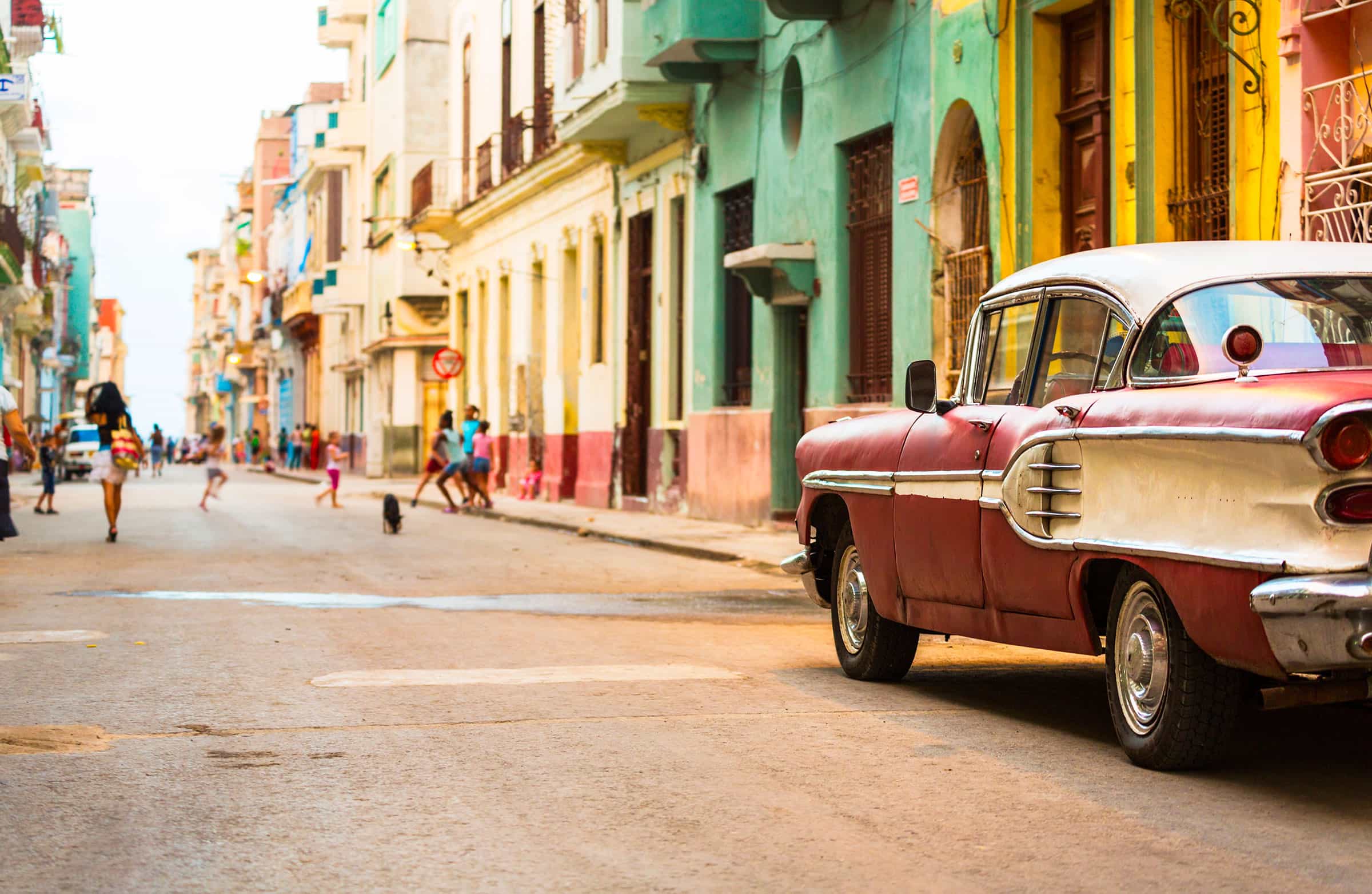
Old Havana
But converting a soviet-era shopping arcade into a temple to conspicuous capitalism isn’t just about bolstering the GDP through the tourism sector. It’s about luring foreign currencies — that have earned their mettle in a free market system — into a communist regime that has not.
Consider this: If the average wage of a Cuban is $20.00 per month, and a “Versace Lamb Leather Shoulder Bag with Medusa Head” retails for $2,000 in the hotel's gift shop, won’t that exhibition of classism aggravate the very inequality that triggered the Cuban Revolution in the first place?
The Grupo de Turismo Gaviota now has more than 30,000 rooms across Cuba, including, the beachfront in Varadero, Holguín, Villa Clara Cays and Jardines del Rey. And in iconic Caribbean cities like Havana, Baracoa, and Santiago de Cuba amidst protests. With an annual salary of $200 per year, labor stands to take less than a 1% sliver of Cuba’s billion-dollar pie.
While the détente ignited a tourism boom (Cuba will welcome 3.2 visitors in 2024) U.S. tourists are nevertheless warned not to drink the water in a clear and compelling reminder that Cuba is still a Third World country. “Use bottled water when brushing your teeth,” the U.S. State Department warns. “Avoid ice in beverages.” Our encounter with Cuba’s notorious bacteria occurred on our last day la Habana, rendering 3 in our party of 6 to Urgent Care. On reflection, a small if salient price to pay for an authentic peek into history.
Who among our common men has sat at a rooftop pool in Old Havana overlooking its Capitol, Great Theater, and UNESCO World Heritage sites? The famous Castillo del Morro twinkles on the horizon, and from our spacious penthouse suite — on par with the finest luxury hotels in the world — we can see the crumbling Hotel Ambos Mundos: where Hemingway penned his novel about Spain’s Civil War. Considered a literary masterpiece, it was an epitaph to democracy and fascism preceding World War II. Its publication presaged the attack on Pearl Harbor by one year, and informed the principal debate in Western Civilization.

Santiago Garcia w/ friends
He followed us around the Flea Market like a stray, offering to translate as we bartered for souvenirs. Despite being warned not to give money to the locals we paid him anyway, for services rendered, with $20.00 CUC.
The Convertible Paso (which tourists use) is worth 25x’s more than the Cuban Peso (which locals use), and with a little grit and determination he’d effectively earned in one hour what his parents make in a month.
We danced at the Tropicana. We smoked Cuban cigars. We drank vintage rum in the very best bars. It's what we tell people of our trip to Cuba, and frankly all they expect to hear. But the real currency of Havana’s culture shone from a resilient eight-year-old street hustler named Santiago. Daring to dance within Cuba’s twin currencies, he targeted the interlopers of his island, and outsmarted those who govern it. “Freedom is never voluntarily given by an oppressor,” said Martin Luther King. “It must be demanded by the oppressed.”
As the Republic of Cuba comes full circle in its political life cycle it seems and certainly feels as though their economy is as similar today as when its indigenous peoples were forced to work under the Encomienda system. Colonialism, Castro, and communism have given way to the new market capitalism that, for now, appears to serve one elite class.
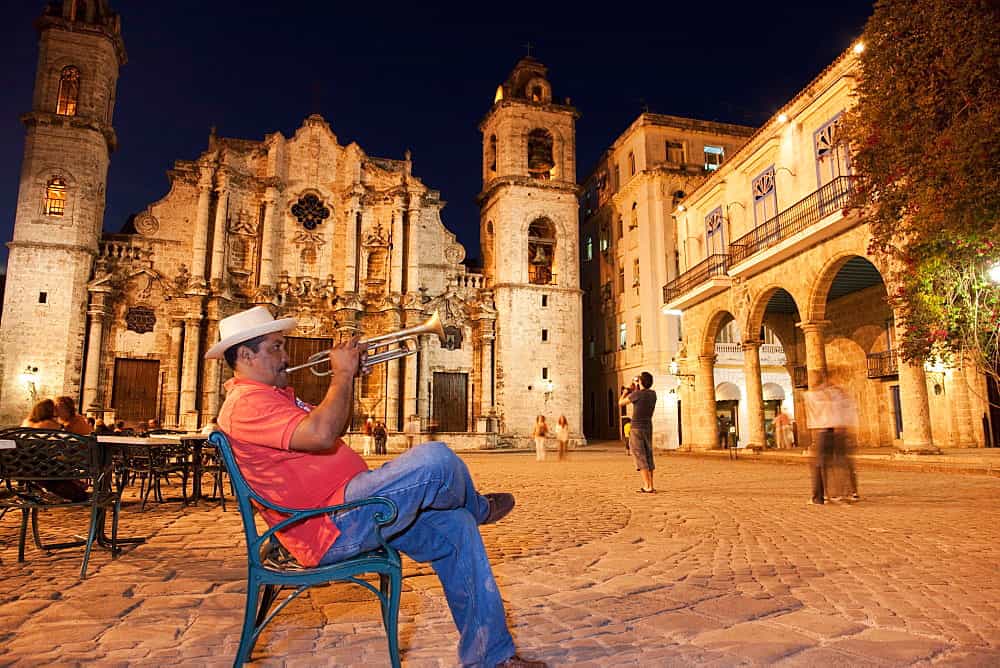
Bell Towers, Havana Cuba
The Havana Cathedral no longer inters the remains of the island’s conqueror, Christopher Columbus, but its asymmetrical bell towers informed every hour of our 12-day sojourn in Cuba.
They rang when Batiste was exiled from the island; when Fidel Castro died; and for a full week following the 26th of July Movement. They rang for Gandhi, Mother Theresa and Barack Obama, too. They could even ring for a presidential candidate whose hinted at a coup.
“Ask not for whom the bell tolls,” Hemingway wrote in his literary classic. For the opus didn’t just chronicle the Spanish Civil War or the rise of Nationalism, but the real life conversations — from soldiers to shop keepers and everyday people — who unwittingly mistook their leader's prejudice for patriotism.
To the indigenous peoples of Cuba; To the conquered and those who flee; To the hustler who won our hearts; It tolls for thee…
Archives



